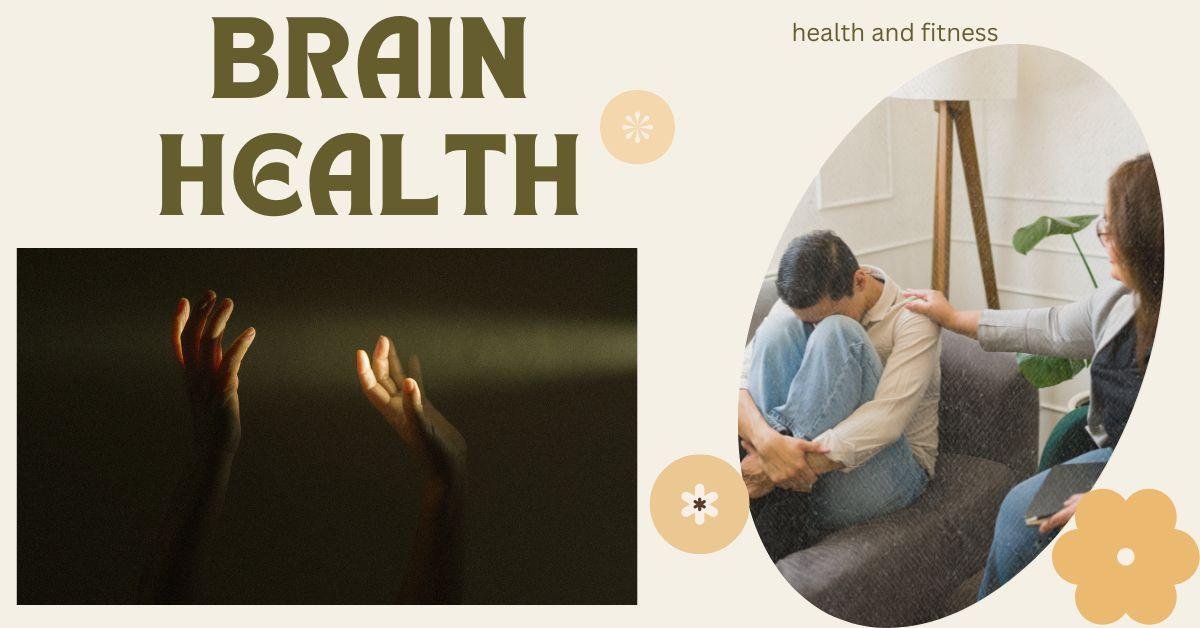As you age, it is normal for your body and brain to change. You can, however, take certain steps to lessen the likelihood of Alzheimer’s disease and other dementias as well as to assist in delaying any memory loss.
Follow These Things:
1. Get frequent exercise
There are numerous well-established advantages to exercise, and the brain benefits from regular physical activity as well. Physically active people have a lower chance of having Alzheimer’s disease and are less likely to see a decline in their mental performance, according to numerous studies.
Increased blood flow to the brain during exercise is the cause of these advantages. Additionally, it seems to reverse some of the issues by counteracting some of the aging-related natural declines in brain connections.
Try to get in 30 to 60 minutes of activity several times a week. You can engage in any mild aerobic activity that raises your heart rate, such as swimming, tennis, or walking.
2. Sleep a lot.
Sleep is crucial for the functioning of your brain health. According to some hypotheses, sleep improves memory and brain health by consolidating memories and removing aberrant proteins from the brain.
Instead of sleeping in two- or three-hour chunks, try to get seven to eight hours of uninterrupted sleep every night. Your brain needs uninterrupted sleep to properly organize and preserve your memories. Sleep apnea damages the health of your brain and may be the cause of your inability to sleep for several hours at a time. If you or a loved one thinks you may have sleep apnea, consult your medical team.
3. Adopt a Mediterranean diet.
Your diet has a big impact on the health of your brain. Think about eating a Mediterranean diet, which places an emphasis on whole grains, fish, plant-based meals, and healthy fats like olive oil. Compared to the average American diet, it has less red meat and salt.
According to studies, those who adhere carefully to a Mediterranean diet have a lower risk of developing Alzheimer’s disease than those who do not. To find out which dietary components best support brain function, further investigation is required. Nonetheless, we know that omega fatty acids, which are present in extra-virgin olive oil and other good fats, are essential for proper cell activity, seem to lower the risk of coronary artery disease, improve mental clarity, and reduce the deterioration of cognitive function in older persons.
4. Continue to be mentally engaged.
Like a muscle, your brain must be used or it will be lost. Reading, playing cards, assembling a jigsaw puzzle, solving Sudoku or crossword puzzles, and other activities are all ways to keep your brain in shape. Think of it as cerebral cross-training. To boost the effectiveness, include a variety of activities.
The majority of medical teams advise against using accessible paid brain-training programs. These programs frequently emphasize memory techniques that are not applicable in real life or overpromise outcomes. Reading and solving puzzles can both provide your brain with an equally effective workout. Lastly, avoid excessive TV viewing as it is a passive pastime that does not do much to engage your brain.
5. Continue to be socially active.
Memory loss may be exacerbated by stress and despair, which social engagement helps prevent. Seek out chances to interact with friends, family, and other people, particularly if you live alone. Being socially active may have the reverse impact and improve brain health, as research has linked solitary confinement to brain atrophy.
Maintain the health of your blood vessels.
In addition to being vital for heart health, the condition of your veins and arteries is also vital for brain health. Regularly monitor your blood pressure, cholesterol, and blood sugar levels, and take action to maintain them within normal limits.
Lower blood pressure and cholesterol by eating a Mediterranean diet, increasing physical exercise, and consuming less sodium. Finally, avoid smoking and only consume alcohol in moderation because both substances hurt brain health. Up to one drink for women and up to two for men per day are considered to be within the range of moderate drinking.
The brain weighs only three pounds, yet it has a lot of power. Your personality and all of your memories are contained in those three pounds. Your thoughts, emotions, and movements are all coordinated by the brain.
It is all made possible by the billions of nerve cells in your brain. These brain cells, known as neurons, communicate with the rest of your body. Your muscles may not move smoothly if they are not functioning correctly. Some regions of your body may become devoid of sensation. You might be thinking more slowly.
Damaged or destroyed neurons are not replaced by the brain. Therefore, it is critical to look after them. Brain cell loss or damage can result from head trauma, drug abuse, and illnesses like Parkinson’s and Alzheimer’s.
One of the most important ways to maintain brain health is to cultivate brain-healthy habits. This entails taking precautions and maintaining mental clarity and activity. Try these suggestions for brain health:
1. Put in a lot of effort
Those who engage in physical activity are more likely to maintain mental acuity. Additionally, regular exercise can enhance mood, vitality, strength, flexibility, and balance. Exercise may reduce the risk of Alzheimer’s disease, according to research.
The Department of Brain Health and Human Services advises most healthy adults to engage in moderate aerobic exercise, like brisk walking, for at least 150 minutes each week. Alternatively, it suggests 75 minutes of intense aerobic exercise, like jogging, every week. This activity should ideally be spread out throughout the week.
2. Keep your head safe.
A person’s life may be significantly impacted for some time by brain damage. Thinking, memory, speech, coordination, and emotions can all be impacted by brain injury. Always wear a helmet when engaging in activities that carry a risk of head injuries to safeguard your brain health. Biking, skiing, horseback riding, and riding a motorcycle, snowmobile, or all-terrain vehicle are a few examples.
Head injuries can also result from falls and auto accidents. Wearing a seatbelt in the car can help prevent head injuries. Use caution when walking on ladders, uneven terrain, or in new places to prevent falling.
Clearing up debris from hallways and staircases might help prevent falls at home. Make sure stairwells are well-lit. To prevent slipping, make sure all rugs and carpets are securely fastened to the floor.
3. Look after your brain health
Thinking and memory issues can be more likely to develop in people with certain medical illnesses. Additionally, they may increase the chance of a stroke, which can harm brain blood vessels. High blood pressure, heart disease, and diabetes are some of the most prevalent of these ailments. Follow the advice of your healthcare provider on how to manage and treat any persistent medical issues. Ask your medical staff what you can do to avoid these conditions if you do not already have them.
4. Get together with your pals.
Do it if you are unsure whether to invite loved ones over or go out with pals. Social interaction helps prevent stress and sadness. Both may exacerbate memory loss. Additionally, social isolation and loneliness have been associated with an increased risk of Alzheimer’s disease and cognitive decline.
5. Have a restful sleep.
The human equivalent of charging your phone is going to sleep. A restful night’s sleep keeps you alert, enhances memory and brain function, and facilitates daily chores. Depression and stress are also lessened by rest.
Prioritize getting adequate restful sleep. Adults need seven to nine hours of sleep every night. Schedule a consultation with your healthcare provider if your sleep is disturbed by snoring. A sleep apnea or other sleep condition may be indicated by snoring. Sleep-related disorders may increase the risk of dementia and a reduction in cognitive abilities.
6. Prepare a salad.
Eating a nutritious diet may help prevent or postpone dementia symptoms, according to research. The MIND diet, in particular, may be a useful strategy for maintaining brain function.
Mediterranean-DASH Intervention for Neurodegenerative Delay is referred to as MIND. Your brain gets fuel from this diet of brain-healthy foods, which helps to increase mental focus and slow the deterioration of thinking abilities.
7. Test your mental abilities.
Engaging in mental activities can help you maintain the same level of physical fitness as your body. Additionally, those exercises might enhance memory and brain function. Solve crossword problems. Go ahead and read. Engage in gaming. Acquire the ability to play an instrument. Take up a new pastime. Volunteer with a community organization or at a nearby school.
8. Limit alcohol intake and use medications with caution.
Alcohol and drugs can interfere with brain cell communication. They may also affect how your brain responds, plans, solves issues, and regulates impulses. Pay close attention to the instructions on medications. This also applies to over-the-counter medications.
If you decide to consume alcohol, do so sparingly. For healthy people, that entails no more than one drink per day for women and two for men. In addition to increasing your risk of falling, excessive drinking can impair your memory. Additionally, it can exacerbate certain brain-related medical disorders like diabetes and high blood pressure.






